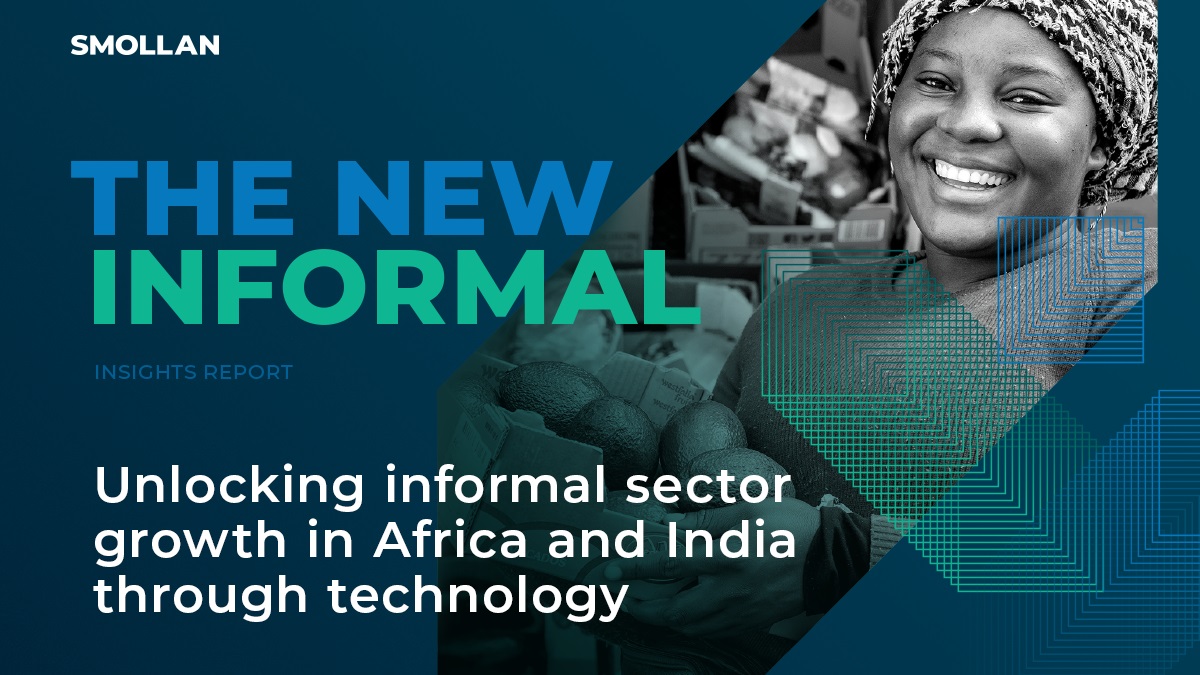Mike Smollan, Chief Growth and Innovation Officer at Smollan looks at how technology is unlocking informal sector growth in the Region along with the emerging themes driving sector transformation
JOHANNESBURG, South Africa, November 15, 2022/APO Group/ —
By Mike Smollan, Chief Growth and Innovation Officer at Smollan (https://Smollan.com/)
Around the developing world, informal retail continues to be a powerful social force, employing millions of people who might otherwise not have jobs, driving economic activity in spaces that formal business has not penetrated, and providing essential goods and services for the under-served. Giving this sector a deep knowledge of their market – enabling them to stock preferred brands and products, and even offer credit to loyal customers.
In Africa, this sector is remarkably resilient, showing adaptability and innovation by adopting new tools and ways of doing business – seen for example in the uptake of mobile internet and other technologies allowing informal retailers to realise some of the benefits of modern trade on their own terms.
Made up of 68% of the total retail market across Kenya, Nigeria and South Africa and comprising 85% of Africa’s labour force, the informal sector is found in a wide range of formats from the spaza shops of South Africa to the air markets of Nigeria and the kiosks in Cameroon. In South Africa the informal economy contributes around 6% of the country’s GDP, employing at least 2,647,000 workers (Stats SA, 2021) with retail sales in the region of $12 billion annually. Outside of South Africa, it’s estimated that informal channels on the continent account for between 40% and 90% of total food sales depending on the country, catering to consumers of all income groups due to its convenience, credit-based payment flexibility and fresh foods.
So to, these spaces have become distribution points for essential financial services that will transform informal retail – driven by products and services aimed at this market from payments to remittances. In turn tech enabled retailers are able to improve their connection to their shoppers, facilitate supplier purchases more efficiently and get access to credit at their fingertips. That said, not all technologies are created equal with five emerging themes driving sector transformation now and well into the future.
Mobile technology drives efficiencies in purchasing and increasing sales with mobile internet penetration projected to reach 51% in 2025
Point of Sale technology facilitates payment as shoppers choose cashless transactions as well as being a valuable source of shopper data. In South Africa iKhoka and Yoco have started to transform the way informal traders do business.
Mobile technology drives efficiencies in purchasing and increasing sales with mobile internet penetration projected to reach 51% in 2025 (Statista, 2021). In Africa the mobile phone is a force for transformation of this sector – allowing for online payments and the use of mobile money, with Vodaphone’s M-PESA, launched in Kenya in 2009, Africa’s most successful mobile money service.
Rising internet penetration is enabling a greater adoption of technologies. While still evolving in Africa as a tool for business purposes, ICT use typically revolves around communication with and purchase from suppliers and also a quick and easy platform for price comparisons for informal retailers to consider when purchasing stock.
The growth of social media, especially WhatsApp, provides an efficient avenue for communication between informal retailers and potential customers. So too, Facebook Marketplace provides a space for the marketing of products with minimal cost and effort from the seller. In turn, social media provides an opportunity for larger suppliers to reach informal retail customers.
Fourth Industrial Revolution technology advancements are unlocking informal trade shopper data some of which may assist businesses that serve the trade. In Kenya, Twiga Foods a B2B logistics platform for kiosks and food stalls do just that in partnership with IBM, analysing sales data from mobile transactions using AI to predict creditworthiness.
With opportunities abounding, there is no doubt that informal markets remain dynamic retail environments. When building a technology-enabled strategy with this sector one must ensure what is built is relevant, usable and effective; adopt a gig economy and digital market research platforms to gather intelligence along with leveraging the technology ecosystem to understand it, the operations, how business is done and what traders require.
Click here to access the full report: http://bit.ly/3hxeqcj
Distributed by APO Group on behalf of Smollan.


 Energy4 days ago
Energy4 days ago
 Business4 days ago
Business4 days ago
 Business4 days ago
Business4 days ago
 Energy2 days ago
Energy2 days ago
 Business4 days ago
Business4 days ago
 Business4 days ago
Business4 days ago
 Energy3 days ago
Energy3 days ago
 Energy3 days ago
Energy3 days ago












